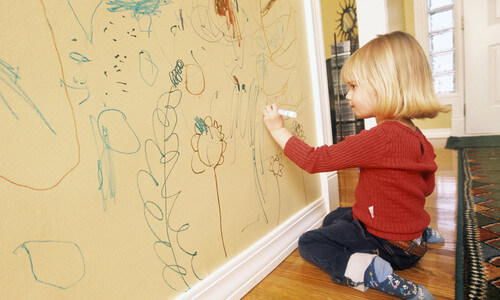Early Childhood
Piaget and Vygotsky
(Age 2-6)
Agenda
Today
- Midterm Reminder for accommodations
- Focused review on Piaget and Vygotsky (The rest reviewed quickly Thurs)
- WS5: Theory of Mind
Physical Growth
- 2-3" growth in height each year (slower than infancy)
- Body proportions become more adult-like
- Brain increases from 70% to 90% of its adult weight
Influences
- Pituitary gland releases growth hormone (GH) and Thyroid-stimulating hormone (TSH)
- Psychosocial Short Stature (PSS) childhood stress can reduce physical growth
- Nutrition, impacted by lower appetit and picky-eating
Motor Development
Gross Motor Skills
- Walks rhythmically
- Walks up stairs alternating feet
- Walks downstairs alternating feet
- Mature throwing and catching
Fine motor Skills
- Uses spoon effectively
- Fastens/unfastens large buttons
- Cuts with scissors following line
- Ties shoes


Piaget

Piaget Sensorimotor Substages



Piaget Sensorimotor Substages



*Object Permanence*
Piaget Sensorimotor Substages



Piaget

Piaget: Preoperational Thought
- Egocentrism
- “Stuck” in own viewpoint
- 3 Mountains Problem
- Private speech
- Piaget “egocentric speech” (useless monologue)
- Vygotsky disagreed (it is useful!)
- Child fails conservation tasks
- Lack hierarchical classification
- e.g. "cats" and "dogs" are both "animals"

Developing "Self" and "Others"
- Solipsism and Descartes
- Empathy v. Theory of Mind
Piaget and Play
- Ages 2-7: gains in mental representation
- Make-Believe Play
- Play detaches from the real-life conditions
- Play becomes less self-centered with age
- Symbol ~ World Relations
- Children understanding that symbols correspond to the real world
- Language becomes the flexible means of mental representation


"Cat"
=
=
Notes from
Derrida
Vygotsky and Play
"Tools of the Mind"
- Socio-dramatic Play
- The most “mature/advanced” form of play
- Taking on social roles (role-play)
- Pretend scenario
- Following play “rules” increases children’s self-regulation
- Symbolic object substitutions (using banana for a phone)
Notes from
Butler

Piaget v. Vygotsky
- Piaget and Education
- Discovery learning
- Vygotskian Education…
- Assisted Discovery
- Teachers guide learning
- Peer collaboration
- Dramatic Play
-
Scaffolding in the ZPD
- "Scaffolders" adjust their support
- Promote private speech
- more advanced cognition

Copy of Early Childhood-physical&cognitive
By cypurr
Copy of Early Childhood-physical&cognitive
- 134



